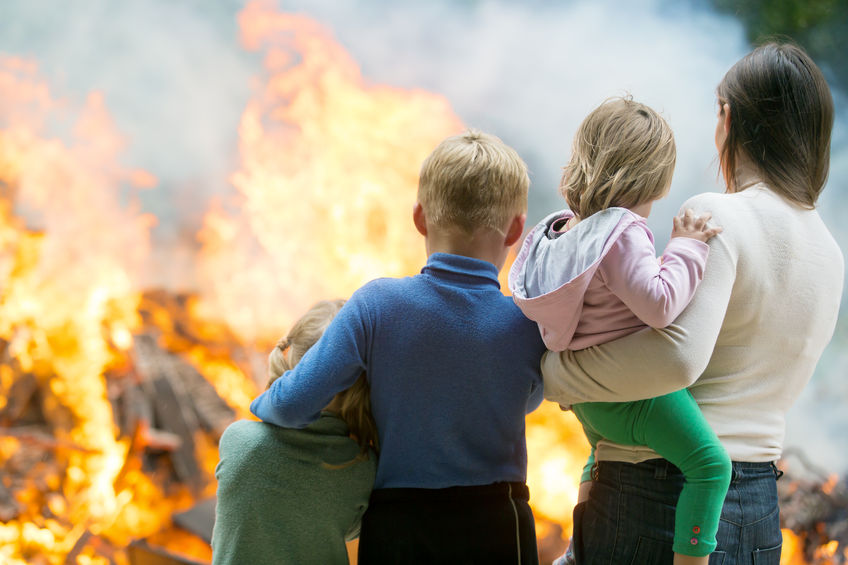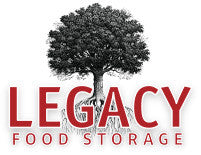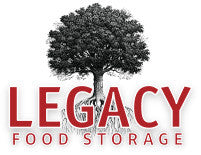
Are You Prepared?
Contributed by Rob Hanus
When asked that question, there are, generally, three basic responses: "Yes," "I think so," or, "Prepared for what?"
Even among those who responded affirmatively, believing they are sufficiently prepared for disasters, many do not realize they are, most likely, not prepared enough. Recent studies by FEMA found a rather wide margin between survey respondents stating they were prepared and the actual number of people prepared when stuck by a local tornado.
Starting at the beginning, let's address the simple question, "Be prepared for what?" It's an honest question, though one that isn't always easy to answer. People intuitively understand it’s a good idea to be ready; they take a look around them locally, in their state, in the country and in the world and see the disaster happening. However, most never make a direct connection of this happening to themselves and cannot justify the expense.
Yet, hardly a day goes by without some disaster occurring, somewhere in the world. And while it’s easy to wave off those happening in far and distant lands, there are a good number of disasters and emergencies happening on a regular basis in our country, our state and right in our own neighborhoods.
Though these may be small or far enough away, so as not to impact you directly, there will come a time when they do. Every state in the US is affected by disasters, from the annual wildfires in California and Arizona, to the hurricanes in the south, to brutal winter storms in the north and east. Globally, terrorism is nearly a daily occurrence, and there exists the very real possibility of a solar flare so massive, it can wipe out the power grid. Are you ready for any of these events? You should be.

Hurricanes Harvey and Irma, including the damage in Puerto Rico, show us why it’s important to cover the basic necessities, at a very minimum. This way, you are not amongst everyone else who has to drive miles or fight for food, water and basic supplies. Assuming supplies are even available.
Three common events not typically considered disasters, but are likely to strike everyone at some point, include home fires, job loss, and crime. Losing income is never easy and especially so when your family depends on that income for daily life, such as paying the mortgage, rent or bills and buying food, toiletries, school supplies, shoes and clothes. Worse still, is what happens when your home catches fire and quickly reduces your possessions to ash, or a home invasion resulting in a personal crime and injury. The additional emotional trauma associated with these events compounds our ability to cope with them.
If you haven’t thought of these events as something needing to be prepared for, you’re not as prepared as you thought. You’re not alone, however, as many people would prefer to watch a sitcom on television instead of contemplating these horrible events. However, having a comprehensive preparedness plan means you've already planned for, not only the common disasters, but also these types of “everyday emergencies,” too.
Part of being comprehensively prepared means you're better able to better handle any crisis or disaster situation, because you took the time to make simple preparations. This includes having things like food storage and a cash reserve to help see you through. Preparedness is simply about giving yourself options and opportunities. When the disaster, crisis or other out-of-the-ordinary event occurs and you're prepared, you have options available to you that you wouldn't have if you didn't plan ahead. But, only if you are prepared.
Think you’re really prepared? Let's look at a typical power outage. At first, it's an inconvenience, not having the lights come on when you flip the switch, having to keep the refrigerator closed so your food doesn't warm up too fast, or not being able to fill up your gas tank because the pumps aren't working. What happens if the outage is for more than just a few hours?
The sun has set and it's now nearly pitch black, both inside and outside your home. Do you have a way to light your home with flashlights and extra batteries? When's the last time you've checked those batteries? What about that flashlight, does it still work or have the batteries inside it leaked and destroyed it? Candles are a logical choice for a long-term light solution, but they are dangerous. Many people have lost their homes, possessions and even their life from fires started by candles and open flames. Everyone needs to understand fire safety and how to use a fire extinguisher. You do have fire extinguishers, right?

A much safer option is to employ one of the newer solar solutions. These can not only provide a long term lighting solution, but also provide power to recharge your mobile devices. Keeping your cell phone charged is critical for communicating and getting information.
Let's fast-forward a bit, the power has been out for over 12 hours now, how's the food in your fridge? Let's say you have a generator and you're running it to keep your refrigerator and deep freezer cold. How much fuel do you have on hand? How long will this fuel last? Do you even know how much fuel your generator uses per hour? Have you planned for neighbors demanding to plug in an extension cord? That fuel you've been storing in the hot garage for the generator, has it been treated for long-term storage, or did you just put degraded fuel into your generator, which is now beginning to sputter?
The power outage has gone on for 24-hours now. How much water do you still have on hand? Have you been using your stored water faster than you expected because your family flushes the toilets far more than you thought they did? Is the water safe from the tap? There’s no way to know, so be sure to filter it before consuming it (which includes drinking, cooking, and brushing your teeth). It’s dark again, and you’ve decided to stay awake all night because the house across the street was broken into last night. Speaking to your neighbors confirmed this, but it did not explain the screaming you also heard last night. Do you have a home defense plan? Are you able to make coffee, so you can stay awake throughout the night?
Preparedness isn't really all that difficult. It just takes forethought and planning. It's about looking forward and thinking, "What happens if...?" and then doing what you can to prepare for it and making sure you've covered the basics. Being prepared doesn’t mean you have to live off-grid or isolate yourself with a wall around your home. It’s about being prepared to face the common and uncommon events we experience throughout our lives. Though it can be a lot of work, the rewards for knowing you’ve prepared your family is worth it.
In our next article, we’ll discuss some things you can do to start getting better prepared.
Tags
- All
- 25 year food
- 25 year shelf life food
- 72 hour kit
- Best food storage types
- Best long-term food storage
- Blizzard preparedness
- Budgeting
- canning
- Certified GMO-free Emergency foods
- Certified GMO-free foods
- Coffee
- Comparison of emergency food methods
- Composting tips
- Dangers of genetically modified foods
- dehydrated food
- Edible Wild Plants
- emergcy preparedness
- Emergency Cooking
- Emergency Food
- Emergency food Christmas gifts
- emergency food storage
- Emergency Food Supply
- Emergency food supply recommendations
- Emergency Planning
- Emergency Preparedness
- Emergency preparedness advice
- emergency preparednesss
- Emergency Supplies
- Emergency supplies checklist
- Emergency Survival
- emergency survival gear
- Emergency survival kit checklist
- Emergency Survival skills
- exercise
- Family emergency preparedness
- Family emergency preparedness plan
- Family Preparedness
- Food Storage
- Food storage 25 year shelf life
- Food storage amounts
- Food storage Christmas
- Food storage containers long term
- Food Storage Secrets
- Food storage serving size
- Food storage types compared
- freeze dried food
- Freeze dried food storage
- freeze dried meats
- Freeze-dried emergency food storage
- Fruit Trees
- Gardening
- Getting Started
- Gluten-free food Storage
- Gourmet emergency food
- Healthy food storage
- How much emergency food to store
- Improved emergency preparedness
- Jared Markin
- Jared Matkin
- Legacy Premium
- Lessons learned from Hurricane Sandy
- Lessons learned from natural disasters
- long-term food storage
- Long-term Food Storage Guidelines
- Long-term Food Storage tips
- Long-term water storage
- Mental Emergency Preparedness
- Mental toughness
- Money-saving tips
- Natural disaster planning
- Natural Disasters
- Perfect Christmas gifts
- Pet Emergency preparedness checklist
- Pet Emergency preparedness kit
- Pet Emergency Survival tips
- Pets and Emergency Preparedness
- Plant Foraging
- portable solar panels
- portable solar power
- portable water filters
- protein drinks
- Risk of genetic modification
- Seed saving and storage
- Seed saving guide
- Self-reliance
- Self-reliant practices
- Shelf Life
- Solar Cooking
- Solar Ovens
- Special Dietary needs
- Stranded in a car in a blizzard
- Survival food
- Survival Gear
- survival kit
- Survival kits
- Survival Ovens
- Survival Skills
- survivalist gear
- suvival kit
- Tree Pruning tips
- Tree Trimming basics
- unique ideas
- water bottle with filter
- water filter
- water filter straw
- water filters
- Water Filtration
- water pitcher with filter
- water pitchers with filters
- Water purification
- Wild Food Foraging
- Winter composting
- Winter driving
- Winter preparedness tips
- Winter storm preparedness tips
- Winter Survival







